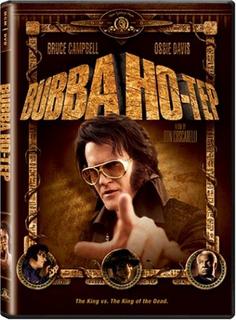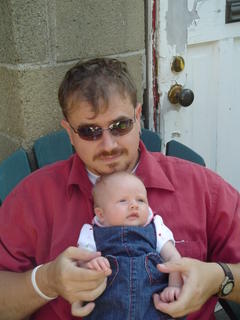Ick. Ick ick ick ick ick ick. Ick.
I feel like I need a shower.
I just finished reading the novel
Left Behind, the first of a series of twelve depicting “the Earth’s last days,” written by evangelical preacher
Tim LaHaye and general prose hack Jerry Jenkins. Simply put, these novels begin with the “Rapture,” the supposedly prophesized moment at which all genuine born-again Christians get miraculously assumed into Heaven, leaving the rest of us behind to suffer the seven years of tribulation visited upon the earth by the Antichrist. Hence, “left behind.”
You may have seen this parodied on
The Simpsons.Why, you may ask, am I subjecting myself to this? Good question.
The Left Behind series (which has in fact been trademarked) is enormously popular in the US—especially, as you might imagine, in the so-called “red” states, where the vast majority of Dubya’s fundamentalist Christian vote emerged. They have sold over 70,000,000 copies thus far. No, that’s not a typo. Seventy million. So as someone who is both a scholar of contemporary American literature and popular culture, I have been thinking for some time that this is a phenomenon I should have at least a passing familiarity with.
Fundamentalism in any form is something I find utterly baffling. On his website, Tim LaHaye says, as part of his doctrinal statement, that “We believe the Bible should be interpreted normally, as with any other piece of sane literature, by a consistently literal hermeneutic.” Which is a fancy way of saying that anything written in the Bible is literally true. Not symbolically or metaphorically true. Literally. Adam and Eve in the garden, six days of creation and a seventh of rest, a flood covering the entire earth, a boat that can carry every single species of animal, God stopping the sun in its tracks to give the Israelites the time they need to defeat their enemy (a scriptural passage used to refute Galileo, incidentally), etc. etc. etc.
I don’t even know where to begin with this. What, for instance, does he mean by “any piece of sane literature”? Literature can be sane?? Or does that mean that any piece of literature that needs to be read metaphorically is insane? Maybe this is a new strategy I should use in my class: “Hey kids! In Holy Sonnet #14, John Donne is asking God to rape him! I know that seems weird, but hey … that’s what it says.”
Of course, LaHaye &co. themselves are simply being disingenuous—the very act of writing a series of speculative novels about Bible prophecy itself denies any sort of literal interpretation of scripture and moves into the realm of fabulation. And while Left Behind consistently claims that the end-times prophecies are laid out simply and transparently in the Bible for anyone who cares to look, anyone with a skeptical mind and a passing familiarity with the Bible knows this simply isn’t the case. The Bible, especially the Book of Revelations—the lynchpin in these readings—is written in highly symbolic, metaphorical, oblique and suggestive language. Ignoring the fact that any Bible in English is a translation from Greek and Aramaic—and in some cases from Latin, which makes it twice removed from the original text—a literal reading of scripture is simply impossible anyway. And the so-called “literal” readings we get, such as with the evangelists you see on late-night TV tying themselves in knots trying to assert that Kofi Annan is the Antichrist and the war in Iraq is outlined in detail in Revelations, are themselves playing the symbolism game, but in a manner so reductive and simplistic that if my students did that in their essays, the best they might rate is a C-.
It is however the arrogance of it all that infuriates me—the suggestion that in a world of six billion people with hundreds and thousands of holy texts, religions, sects, splinter groups, cults and congregations, a few hundred thousand have found the key to salvation. Perhaps I’ve read too much Joseph Campbell, but the underlying beliefs and mythologies of all these groups bear too much resemblance to each other for me to ever buy into the exclusivity of a single, reductive, chauvinistic claim to the capital-T Truth.
And the idea of the Rapture itself strikes me as little more than the ultimate revenge fantasy. Think of it: the belief that at some indeterminate point in the future, all born-again Christians will be lifted up into Heaven, leaving the rest of us liberal, urban, agnostic, atheist, Catholic, Jewish, Muslim, gay, lesbian, etc etc. people behind to suffer the strife let loose on the earth by the Antichrist while they look down from their cushy clouds in smug satisfaction. The most lucid statement about the rapture in the Bible is 1 Thessalonians 4:16-17, in which St. Paul assures his persecuted followers that those oppressing them will get their comeuppance. Now, forgive my non-literal reading, but this does rather strike me as a tired Apostle trying to buck up the troops—don’t worry, you’ll have the satisfaction of watching them suffer for a change.
Little of this would really bother me if it weren’t for the fact that evangelicals and fundamentalists actually wield a rather large amount of political clout in the States presently, and that this particular ideology represents one of the ugliest species of American exceptionalism to rear its head, ever. One would think that if you had a genuine belief in the Rapture and the end of days you’d be content to let the world literally go to Hell, to let gays marry and liberals control the Supreme Court. After all, the countdown to Armageddon (according the Reverend Dr. LaHaye) is marked by these such signs and more. Why not just let it happen? But no, there is remarkable triumphalism within the religious right these days. I would think they would be disappointed by a born-again president, a hardcore right-wing Supreme Court, an emasculated UN, and a hobbled left wing, as these things can only serve to slow the coming of the day when they’ll be granted their rightful place beside God.
Looking over the good Reverend LaHaye's website, one finds countless links to other sites engaged in ultraconservative political activism; one also finds a huge amount of marketing. LaHaye may be destined to be raptured up to be Jesus' cup-bearer, but in the meantime we're encouraged to add to his fourtune by purchasing the books of the
Left Behind Series, any one of his almost fifty theological tracts, the children's version of the
Left Behind books, the
Left Behind handbook (believe me, based on the subtlety of the novel I've just read, anyone who needs a
guide to these books must be developmentally retarded), as well as a host of
Left Behind paraphernalia. Quite the booming business he's got going.
But then, I suppose there's something to be said for living out the pre-tribulation days in comfort. I wonder if he's looked lately at Matthew 19:24 -- "It is easier for a camel to pass through the eye of a needle than for a rich man to enter the kingdom of God."
Now, how would you read that
literally?

















 Tonight's play list:
Tonight's play list:




 The proud grandfather, my dad.
The proud grandfather, my dad. Trying to provoke a reaction.
Trying to provoke a reaction.  Who is this crazy idiot?
Who is this crazy idiot?




